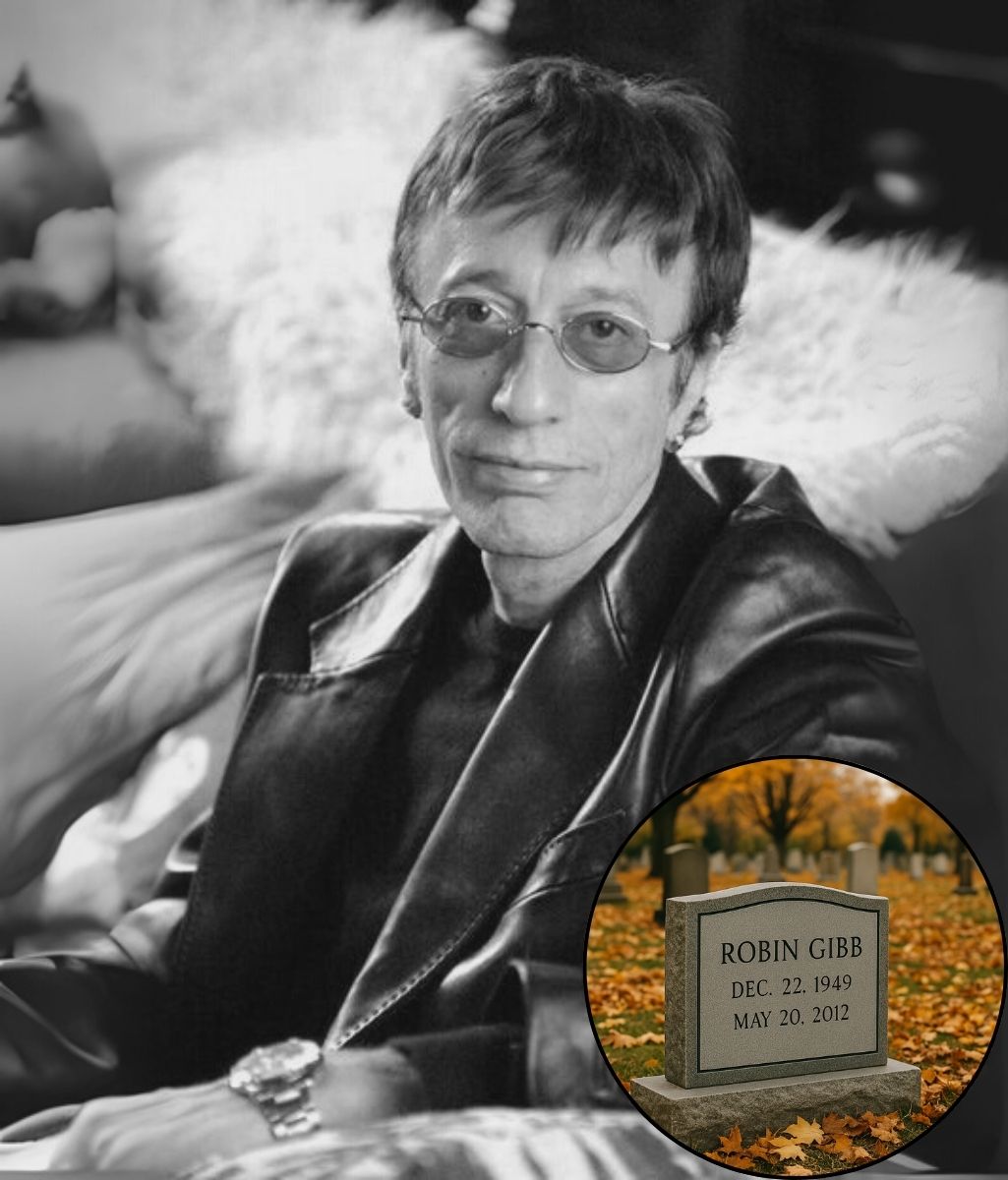Introduction:
The passing of Robin Gibb in 2012 was not simply the result of fame’s excess or the choices of a celebrated life. It was, tragically, the heartbreaking conclusion of a journey marked by silent battles — struggles etched deep into his body long before the world ever knew his name.
From his earliest years, Robin carried an invisible burden. A hereditary illness left his health fragile, an unseen vulnerability that would shadow him throughout his career. Decades later, doctors confirmed what he had endured in private: cancer and intestinal complications that slowly drained his strength, even as he continued to create music that lifted millions.
His fight was not one of glamour, but of grit. Robin faced chronic pain, drastic weight loss, and relentless exhaustion. To cope, he relied on medications and treatments that became both his shield and his chain. Painkillers allowed him to perform despite physical torment. Sedatives offered brief sleep. Stimulants gave him enough energy to step back into the spotlight. This was not indulgence, but survival. Robin’s dependence on medicine was not about escape — it was about honoring his promise: to keep living, to keep singing, to give his audience everything he had left.
Could his life have been saved with today’s medical advances? Perhaps. With new treatments and greater understanding of genetic illness, modern medicine might have offered him more time. But in his era, the knowledge was limited, the options narrow. Robin trusted his doctors, believing that every treatment, every pill, every painful procedure might grant him just a little longer with the music he loved and the people who loved him.
For the Gibb family, his decline was another unbearable blow. Barry, the eldest brother, had already mourned the sudden loss of Maurice in 2003. Watching Robin fade nearly a decade later was a torment few could imagine — another voice of the Bee Gees silenced, another harmony lost. Barry has often spoken of the agony of carrying on alone, each performance an act of remembrance, each song a dialogue with ghosts.
Behind the glitter of disco lights, behind the triumph of record sales and awards, was a man giving everything and asking nothing in return. That is the truth of Robin Gibb. He was not only a star, but a human being — frail, brave, and endlessly devoted to his art.
His legacy remains not just in the Bee Gees’ anthems that still echo across the world, but in the story of a man who carried his burdens quietly, and who chose to keep singing even as his strength faded.
